Mexico Starts Creative Campaign to Raise Money For Endangered Axolotls — Details
Updated Nov. 28 2023, 3:57 p.m. ET
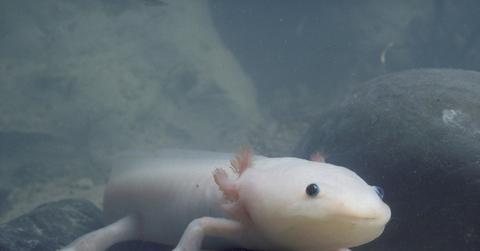
The Gist:
- Axolotls are carnivorous salamanders native to Mexico, especially Lake Xochimilco.
- Many believe axolotls are the key to medical breakthroughs specifically in regenerative medicine.
- Axolotls are critically endangered due to climate change, human development, pollution and overfishing, amongst other things.
You’ve probably seen them somewhere on the internet, whether it be Instagram, TikTok, or a random nature video, but the cute salamander in every online corner is becoming harder and harder to find in the wild.
The axolotl is famous for its exceptional regenerative abilities, youthful look, and all around adorable face, so why are the axolotls endangered? Here's what you need to know about this unique creature, explained.
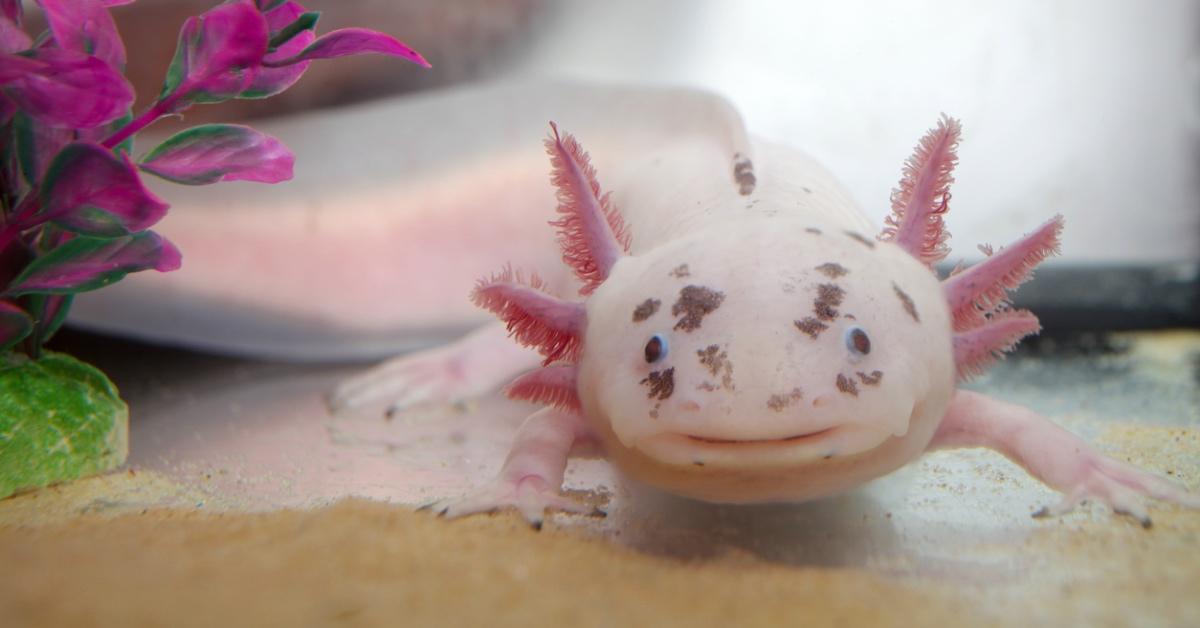
Why are axolotls endangered?
The carnivorous salamander native to the lakes of Mexico, the axolotl (pronounced AX-oh-lot-ul), is facing extinction primarily due to human development, habitat loss, droughts, wastewater disposal, and climate change, per National Geographic. The axolotl are considered critically endangered by the ICUN Red List after assessment in 2019.
Axolotls once swam all throughout Xochimilco's canals, however, polluted water due to urban sprawl and the increase in non-native species competition has led the population to decrease, as per Reuters.
Although the axolotl is often bred in labs and captivity, they continue to decline in the canals of Mexico City, their only remaining natural habitat.
According to Vox, axolotl habitat destruction started as early as the Spanish invasion during colonization, where the growth and development of Mexico City sent chemicals and sewage into local waterways, changing ecosystems forever. Since then, fertilizers, pollution, chemicals, etc. have only increased, as well as the introduction of non-native species that outcompete native species like axolotls.
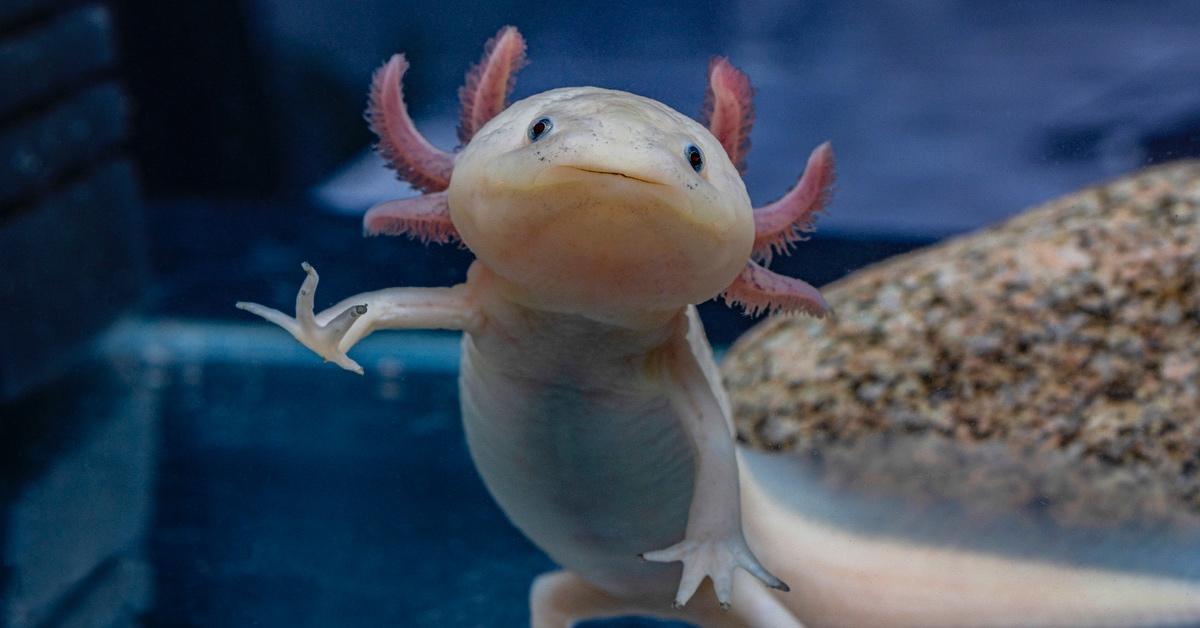
A new campaign in Mexico aims to provide funding for axolotl conservation.
In mid-November 2023, The National Autonomous University of Mexico started a campaign where users can virtually adopt an axolotl. Like many other humanitarian "adopt an animal" virtual campaigns, the adopter can name their virtual creature and receive a certificate of adoption in exchange for a small fee.
Alternatively, donors can contribute funds towards an axolotl's food or habitat.
All the money from the fundraiser will go towards conservation efforts for axolotls. According to NPR, the National Autonomous University did the same campaign in 2022 and raised almost $30,000, which was enough funding to build 4 axolotl refuges.
Tragically, four isn't nearly enough, and ecologist Luis Zambrano, who works for the university, says they need "10 times that number" to restore the population.
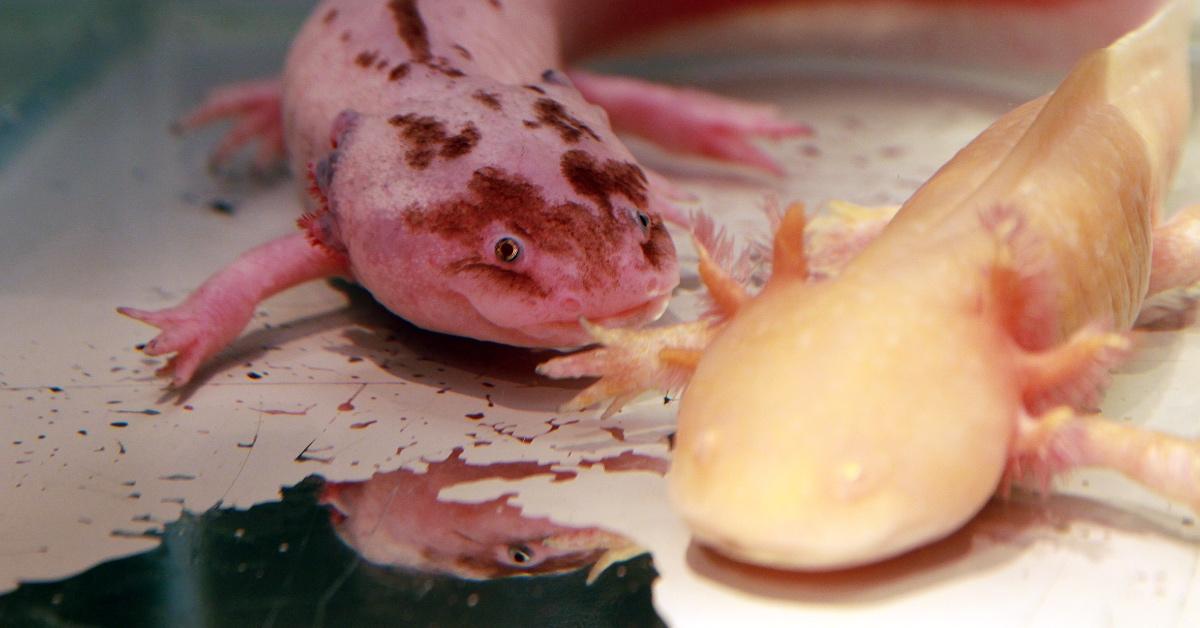
Climate change and humans are both major factors in axolotl population decline.
As the U.S. Geological Survey notes, droughts have increased with climate change, and thus, all over Mexico, even eliminating an entire natural habitat for the axolotl, Lake Texaco. This leaves Lake Xochimilco as the singular natural habitat for the axolotl, per Earthday.org.
The other contributing factor to the decline of the axolotl population, to no one's surprise, is humans. The growing expansion of Mexico City has polluted the waters of Lake Xochimilco, which in turn makes axolotls sick.
"It's a slow death basically," Zambrano emphasizes to NPR.
Axolotl are known for their unique abilities.
The axolotl has been studied for its impressive ability to regrow tissues in the skin, muscles, heart, brain, etc., and its capacity to resist cancerous tissues. Not to mention, axolotls have a condition called neoteny, which is the "ability to retain juvenile features in an adult animal," per Science Direct.
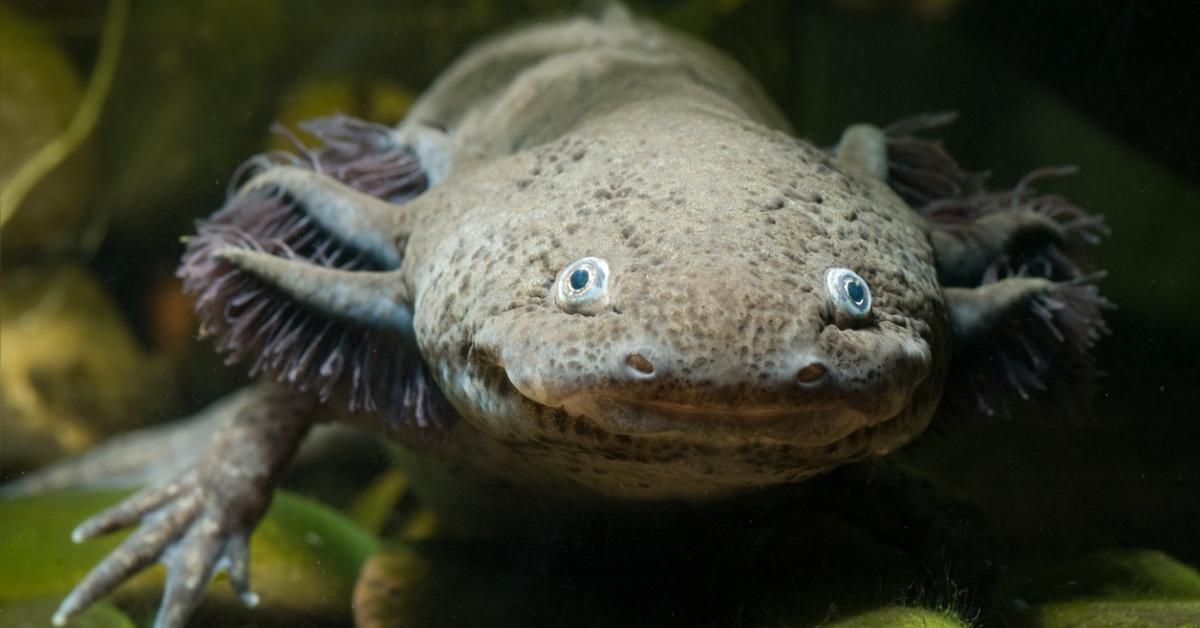
Axolotls live anywhere from 10 to 15 years and, because of their adorable features, are often popular in the pet trade industry. Don't let their popularity fool you into thinking pet parenting these salamanders will be a breeze. Axolotls require very specific diets, as they are carnivorous and feed on crustaceans, mollusks, eggs, and fish, per National Geographic.
Scientists believe the axolotl is crucial to studying regenerative medicine.
A research article published in 2016 by the Department of Stem Cell and Regenerative Biology at Harvard University found that axolotls are able to regrow parts of their brain after injury, growing diverse sets of neurons.
Their ability to regenerate parts of the brain, along with regrowing entire parts of their body with not so much as a scar, is deemed a superpower in the scientific world.
According to an interview between the Boston Museum of Science and Fallon Durant, an axolotl researcher, scientists are studying axolotls to determine what parts of their DNA help them regenerate, and resist diseases like cancer. If this can be understood and replicated, it could be a game changer for human therapeutics.
This article, originally published on March 24, 2023, has been updated.